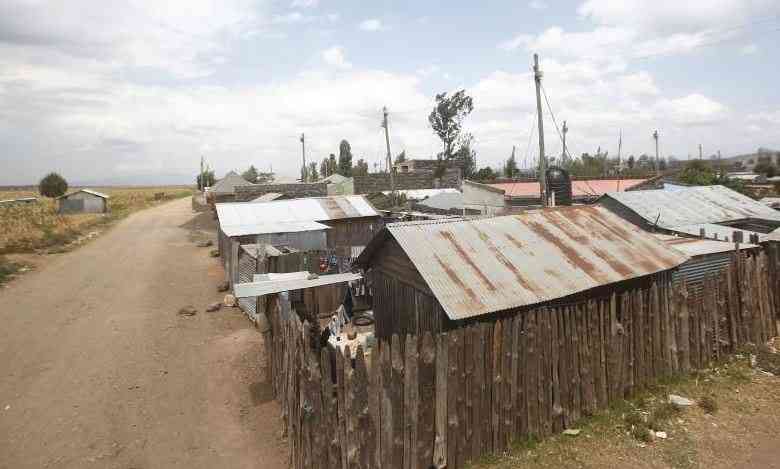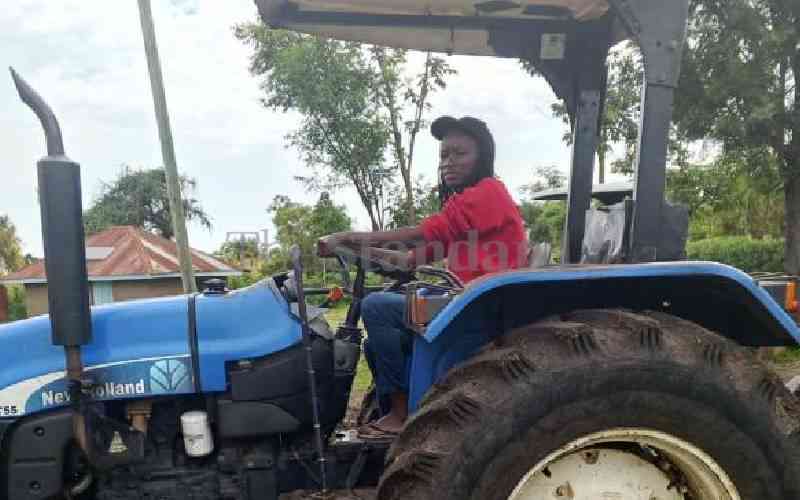Displaced post-election violence victims remain in camps 17 years later
Rift Valley
By
Julius Chepkwony and Daniel Chege
| Jun 10, 2025

Joseph Kuria, aged 64, lives in a cramped, makeshift shelter in a crowded settlement within Pipeline Estate in Nakuru Town. His dwelling, barely 21 by 24 feet, is home to his family of five and is one among thousands built by internally displaced persons (IDPs) on a congested 16-acre parcel of land.
It has been 17 years since the 2007/2008 post-election violence changed Kuria’s life irreversibly. Once a worker on a sisal farm in Rongai, where he lived with his wife and four children, Kuria recalls a life of dignity, security, and stability.
“Life was easy then. We had food on the table. Our children were in school. We were cultivating land given to us by a white settler. We lived in decent homes,” Kuria recounts, his voice laced with nostalgia.
That life, however, was shattered by the post-election violence that erupted after the disputed presidential results. Like hundreds of thousands others, Kuria and his family were violently evicted and forced into displacement.
READ MORE
Sky is the limit for Gen Z graduate, now a tractor driver
The building collapse that sparked Tanzania's jobs ban
How firm's bid to turn waste into cash is paying off
Numbers don't lie as Hustler Fund's viability questioned
Singapore's renewed bid to tap into growing Kenyan market
Safaricom's Safire Connect campaign first season ends
Cabinet gives nod for 80MW geothermal power plant
How Kenyan banks are losing billions to fraud
“We were driven from our home with nothing, but the clothes on our backs. We first moved to the Nakuru ASK Grounds, and then eventually ended up here in Pipeline. It’s been a long and painful journey,” he says.
Kuria is now the chairperson of the Ndonga Farm post-election violence victims, representing over 5,000 people still living in uncertainty. While government reports have declared that all IDPs have been resettled, the reality on the ground tells a different story.
“We’re still in trauma. If only we had been properly settled, we could have moved on with our lives,” Kuria states.
The legal quagmire
In 2011, under the IDP resettlement programme, the Kenyan government allegedly bought the 755-acre Ndonga Farm in Subukia, Nakuru County, from the family of the late Benjamin Wamanji Njoroge. The aim was to provide permanent homes to victims of the 2007/2008 post-election violence.
But this transaction was soon mired in legal wrangles. Eight sisters, along with a sister-in-law and a niece of the deceased, contested the sale. They argued that their brother, Philip Kamau Njoroge, who orchestrated the transaction, had not consulted them as beneficiaries of the estate.
“We were shocked to receive a letter dated August 8, 2011 from the law firm of Rachier and Amollo Advocates, informing us that the land had been sold without our consent,” said one of the petitioners, Irene Kanyi Mwangi.
In 2022, the Environment and Land Court in Nakuru dismissed the initial constitutional petition on procedural grounds but allowed the family to pursue a civil claim. This led to a second lawsuit filed in July 2022, seeking the surrender of the original title deed and removal of Philip Kamau as the estate’s administrator.
In a significant ruling in January 2023, Justice Joel Ngugi found that the sale of the land to the government was irregular. He removed Kamau as the estate’s administrator and ordered that the grant be rectified.
“It is not possible to exclude Ndonga Farm as part of the estate’s available assets for distribution when the distribution had already occurred,” Justice Ngugi ruled.
Despite this, the government has failed to surrender the title deed, as ordered by the court. In February 2024, the sisters returned to court, accusing both the government and the IDPs of contempt and non-compliance.
The legal impasse has left 256 IDP families, such as Kuria’s, in a state of limbo. They live in fear of eviction while continuing to cultivate the land they believe was rightfully allocated to them by the government.
Stephen Mwangi, Secretary of the Subukia Ndonga Farm IDPs, explained: “We have been cultivating this land for over a decade, and we were settled here by the government. It’s not like we grabbed it. But now we’re being told to leave.”
In court documents, the IDPs argued that they had no knowledge of any dispute regarding the land’s title when they were resettled, and that they have a legitimate expectation of ownership.
“We have a right to live in dignity. We have buried our dead here. We have built our homes here. Our children were born here. This is the only home they know,” Kuria asserted.
Justice Heston Nyaga, in a ruling delivered in November 2024, dismissed the sisters’ contempt case, noting that they failed to demonstrate specific acts of defiance by the IDPs or their leadership. However, he urged the Ministry of Lands to expedite a resolution.
A broader national crisis
The crisis facing Kuria and the Ndonga Farm IDPs is not isolated. In Nyandarua County, more than 1,000 families face possible eviction from the 523-acre Muhu Farm. These families, too, are victims of the 2007/2008 violence and claim that the land was promised to them by the government.
However, Muhu Holdings Ltd., which owns the land, filed a suit in 2021, stating that the government had never paid for the property. The company obtained a permanent injunction barring any further settlement or development on the land.
“We moved here because the government told us we would be resettled. But now the owner is demanding payment, which the government has yet to make. The figure has ballooned from Sh750 million to over Sh900 million” said Kanjuiri Ridge Ward MCA Thuo Gachino.
In July 2023, the Senate Committee on Lands approved a payment of Sh1 billion to Muhu Holdings, along with the subdivision of the land. However, as of early 2025, no payment has been made. “People are still wallowing in poverty, waiting for the subdivision of the farm. Many don’t even have a proper place to bury their relatives,” Gachino lamented.
In Laikipia County, some hope was rekindled after a Senate Committee ordered the immediate resettlement of IDPs living in camps across the region.
Senator Mohammed Faki, Chair of the Senate Committee on Lands, Environment and Natural Resources, revealed that the government had acquired 45 farms in Laikipia specifically to facilitate the resettlement of internally displaced persons (IDPs).
He emphasised that the Cabinet Secretary for Lands, Alice Wahome, must ensure that the IDPs are allocated the farms and issued with allotment letters while they await the processing of title deeds.
Senator Faki made these remarks during a visit to an IDP camp in Salama location, Nyahururu Sub-county. He was accompanied by fellow committee member, Senator Mariam Sheikh Omar.
He highlighted contradictions within the Cabinet regarding the status of IDPs. While the Cabinet Secretary for Interior, Kipchumba Murkomen, has insisted that all IDPs have already been resettled, Lands CS Wahome has stated that the process remains incomplete due to a lack of funds needed for the subdivision of the farms.
“These IDPs are victims of the 2007/2008 post-election violence. Eighteen years is far too long to wait. Many have died over the years while living in deplorable conditions in makeshift shelters made from polythene,” said Senator Faki.
The Senate Committee’s visit followed a 2023 petition submitted by national IDP leaders, calling for the Senate’s intervention to expedite the resettlement process.
Senator Faki instructed Nyahururu Sub-county administrators, led by Deputy County Commissioner Bernard Odino, to work closely with camp leaders to compile an accurate list of genuine IDPs. He stressed the importance of this effort to prevent imposters from undermining the resettlement initiative.
He also called on the Laikipia County Government to prepare for the drilling of a borehole once the IDPs have been moved to their designated plots.
Senator Mariam echoed Faki’s sentiments, stressing that most of the camp’s residents are women and children.
Back in Nakuru, Joseph Kuria continues to hold on to hope. Despite the legal setbacks, the uncertainty, and the daily struggle for food and shelter, he believes things will eventually change.
Additional reporting by James Munyeki

